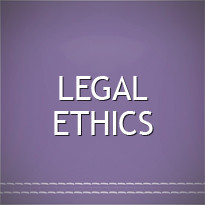In 2003, Felipe Laurel had a land dispute with his neighbor Azucena Laurel-Velez. Felipe then sought the legal assistance of Atty. Reymelio Delute, also his neighbor. Sometime thereafter, Delute fetched Felipe from his home to meet with Azucena. Felipe, as he was unlettered, did not want to go unless his daughter, who is a college graduate, comes with him. But Delute convinced him to come alone.
During the meeting with Azucena, Felipe was made to sign a document. Felipe did not want to sign because the document was in English which he cannot read and understand. Delute explained to Felipe that the document was about Azucena paying Felipe Php300k. Felipe reluctantly signed the document. Out of the Php300k, Felipe only received Php200k because the Php100k was taken by Delute.
Later, Felipe learned that the document he signed was a compromise agreement which was disadvantageous to him. It turns out that by way of the compromise agreement, he had given up his rights in the subject land and at the same time, Delute gained a perpetual right of way in the same lot. Felipe then filed a disbarment case against Delute.
Delute did not refute the allegations but he prayed for the dismissal of the case by reason of laches because it took Felipe nine years from the compromise agreement to file the case.
ISSUE: Whether or not Delute should be disbarred.
HELD: Yes. Delute’s actions breached ethical standards when he personally profited from the signing of the Compromise Agreement by his client, and even resorted to manipulation in conspiracy with Azucena. Delute not only neglected his duty to protect his own client’s interests by failing to explain the true import of the Compromise Agreement; worse, he literally sold out his client’s cause in order to gain personal benefits.
In this case, the Supreme Court also ruled that from now on in disbarment cases, they can already pass upon the issue on whether or not a lawyer has defrauded his or her client into signing certain documents. In a previously decided case, Medina vs. Lizardo, the Supreme Court ruled that the matter of fraud in the execution of an agreement which will have implications on its validity and legal effects must be first threshed out by the parties in the appropriate proceedings and not in the disbarment proceeding. However, during the deliberations of this case, it was ruminated that the above-described doctrine of restraint as pronounced in Medina and subsequent rulings unduly fetters – and in fact, diminishes – the Court’s exclusive and plenary power to discipline members of the Bar. After a careful consideration of these conflicting rulings, the Court has now decided to abandon Medina and other cases wherein a similar doctrine of restraint was espoused. The Court is not precluded from examining a lawyer’s actuations in an administrative case if only to determine his or her fitness to remain as a member of the Bar. This is regardless of the fact that the administrative case involves similar or overlapping factual circumstances with a separate civil case. Disciplinary proceedings against lawyers are sui generis in that they are neither purely civil nor purely criminal; they involve investigations by the Court into the conduct of one of its officers, not the trial of an action or a suit.


